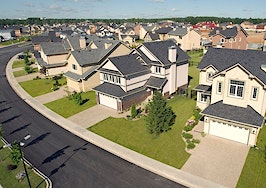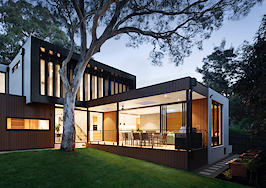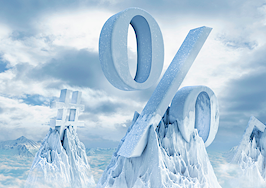In one of the many paradoxes of this housing market, the first year of home price escalation in the pandemic had little effect on the mortgage payments on those same homes.
The reason? Even as homes sold for higher prices, the interest rates on these loans were creeping down to all-time lows, offsetting the difference for buyers.
But in Year 2 of the pandemic, that dynamic changed dramatically.
A recent study by Zillow’s research team shows the typical mortgage payment rose from $885 to $1,162 in the last year alone. That 31 percent increase is the fastest annual pace recorded in at least two decades, and was driven by skyrocketing home prices and exacerbated by climbing mortgage rates.
This brings the typical mortgage payment in January 2022 to its highest level on record, exceeding even the heights of the pre-2008 housing bubble.
For now, prices are still rising fast, albeit slower than in the red-hot spring and summer of last year. But if mortgage rates continue to rise as many expect, it could spell more uncertainty for home prices in the near to mid future.
“What’s unclear is what this all means for home price appreciation,” Zillow Senior Economist Jeff Tucker said in the report. “With so few homes on the market, sellers still may expect multiple offers on their listings, even if a substantial share of buyers press ‘pause’ on their home search for now.”
Zillow’s study calculates mortgage payments assuming the buyer purchases a home with 20 percent down and a 30-year mortgage. The home prices and mortgage rates of the time determine the typical mortgage payment estimate.
After a brief lull in home sales near the beginning of the pandemic, home prices started to climb rapidly in 2020 as some buyers rushed to take advantage of extra cash, more flexible work arrangements and falling mortgage rates.
But those rising prices didn’t necessarily result in higher mortgage payments, at least at first.
Check out Zillow’s visualization below, and their full report here.
At the end of the day, rising mortgage rates may put downward pressure on home price growth. But it could also have an unexpected effect on prices, depending on how buyers and sellers respond to the changing environment, Tucker said.
“Further, the inventory drought may get deeper, if existing homeowners who bought or refinanced at rates below 3 percent decide to hunker down for now, rather than pay more in interest to trade up in today’s conditions,” Tucker said in the report.













